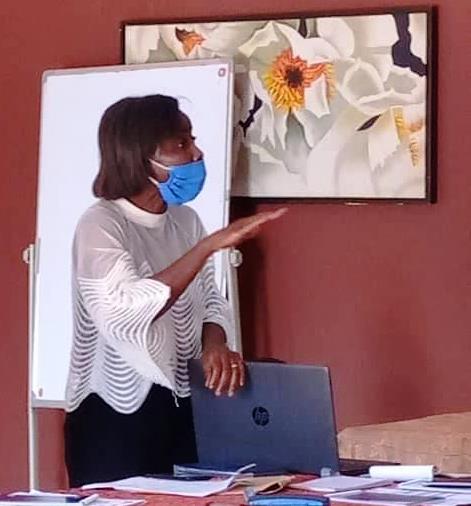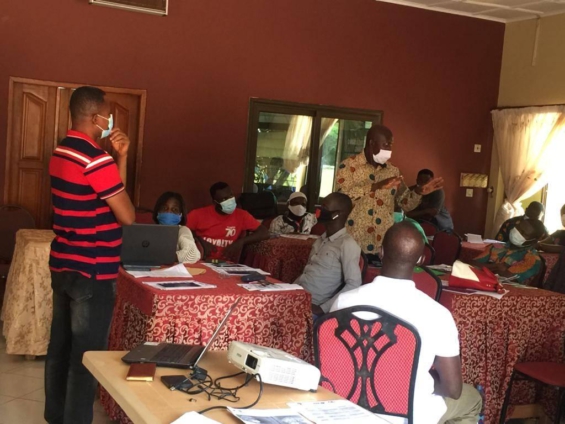Stakeholders in the health sector have called on government to apportion part of the National Health Insurance Fund (NHIF) to support the Ministry of Health (MOH) in order to fund immunisation.
They further underscored the urgent need for government to find fiscal space to progressively move MOH’s share of Ghana’s total expenditure to a minimum of 15 percent.
The call was made during a stakeholders’ forum at Kenyase in the Asutifi North District of the Ahafo region on Immunisation Advocacy Initiative (IAI), targeted at increasing domestic financing for immunisation.
According to the stakeholders, a substantial increase in the overall health budget will translate to healthy allocations for critical areas such as routine immunization.
“Based on the projected financing obligation from 2019 to 2024, it is evident government cannot sufficiently cater for its own immunization costs by 2026 if the rate of financial commitment to immunization remains the same.
Therefore, the Ministry of Finance should commit more funds towards immunization in order to make substantial savings on expenditure towards treating vaccine-preventable diseases,” the stakeholders argued.
The Bono, Bono East and Ahafo Regional Coordinator of West Africa Aids Foundation (WAAF), Edward Ayabilah, said Ghana’s largest external immunisation financier, Global Alliance for Vaccines and Immunisation (GAVI), was due to exit in 2026 therefore a wide funding gap has been created that required critical attention from the government.
He added that the “Government of Ghana must invest heavily in immunisation programmes and as well put measures in place to become fully self-financing for vaccines before the exit of GAVI.
"We should be prepared to do it if only the country was to protecting the gains made in reducing mortality and morbidity due to vaccine-preventable conditions over the years”.
Mr. Ayabilah pointed out that Ghana defaulted in paying its co-financing to GAVI in 2014 and 2016 and continues to face challenges, honouring its co-financing obligations.
“For instance, in 2018, Ghana defaulted by 39 percent, paying only 30 percent against the expected 69 percent contributions to routine immunisation expenditure.
"This can be attributed to the government’s increasing low budgetary allowance to health, particularly for goods and services, all in the wake of donor transition,” he emphasized.
He re-echoed the need for government to reprioritise within the NHIF support for immunisation in readiness for the exit of GAVI.

For her part, the Deputy Ahafo Regional Director of Public Health, Dr. Felicia Amoo-Sakyi, bemoaned the absence of a regional cold room in the region, adding it has been a hindrance to the immunization exercise because vaccines and other supplements always have to be transported from Sunyani.
She indicated that management was working round the clock to make sure the new Ahafo region will get a regional cold room soon.
Dr. Amoo-Sakyi encouraged stakeholders in health to continue generating more discussions about local resource mobilization for immunization financing, as Ghana is in the preparatory transition stage and in the next five years is expected to fully self-finance vaccine purchases and immunization activities since GAVI, the major donor is leaving.
The IAI project was sponsored by the African Population and Health Research Centre (APHRC), to engage stakeholders, citizens as well as policymakers in discussing issues of health and immunisation budget allocations, among others things.
Latest Stories
-
Gong Gong Awards set to make waves worldwide as AAG Executive Director Isaac Cudjoe unveils global vision
2 hours -
Miracle in Madina: Woman declared dead in Hajj returns home, stirring community shock
4 hours -
Mobus CEO apologises to Nigerian Police over Abuja land row, distances firm from protest at Nigerian High Commission in Accra
6 hours -
Experts urge institutionalisation of evidence-based health policies in Ghana
7 hours -
Government to convert National Cathedral site into National Cultural Convention Centre
7 hours -
Former Sports Minister Mustapha Ussif loses sister
8 hours -
Ayoum community appeals for fixing of collapsed bridge to ease commuting
8 hours -
Full text: Mahama’s speech at the Post-Election Evaluation Dialogue
8 hours -
Kumasi: 545 police personnel pass out to support 24-hour economy
8 hours -
No Ghanaian child will be denied tertiary education because of fees – Mahama
8 hours -
Ghana, U.S. reaffirm strategic ties at 249th Independence Day celebration
8 hours -
Full text: Mahama’s speech at launch of No Fees Stress policy
9 hours -
President Mahama promises justice for electoral violence victims
9 hours -
JoyNews Impact Maker awardee nominated for Global Citizen Waislitz Award, vote for him to win $100,000
9 hours -
Partey has fully cooperated with police throughout three-year investigation – Lawyer Jenny Wiltshire
11 hours

